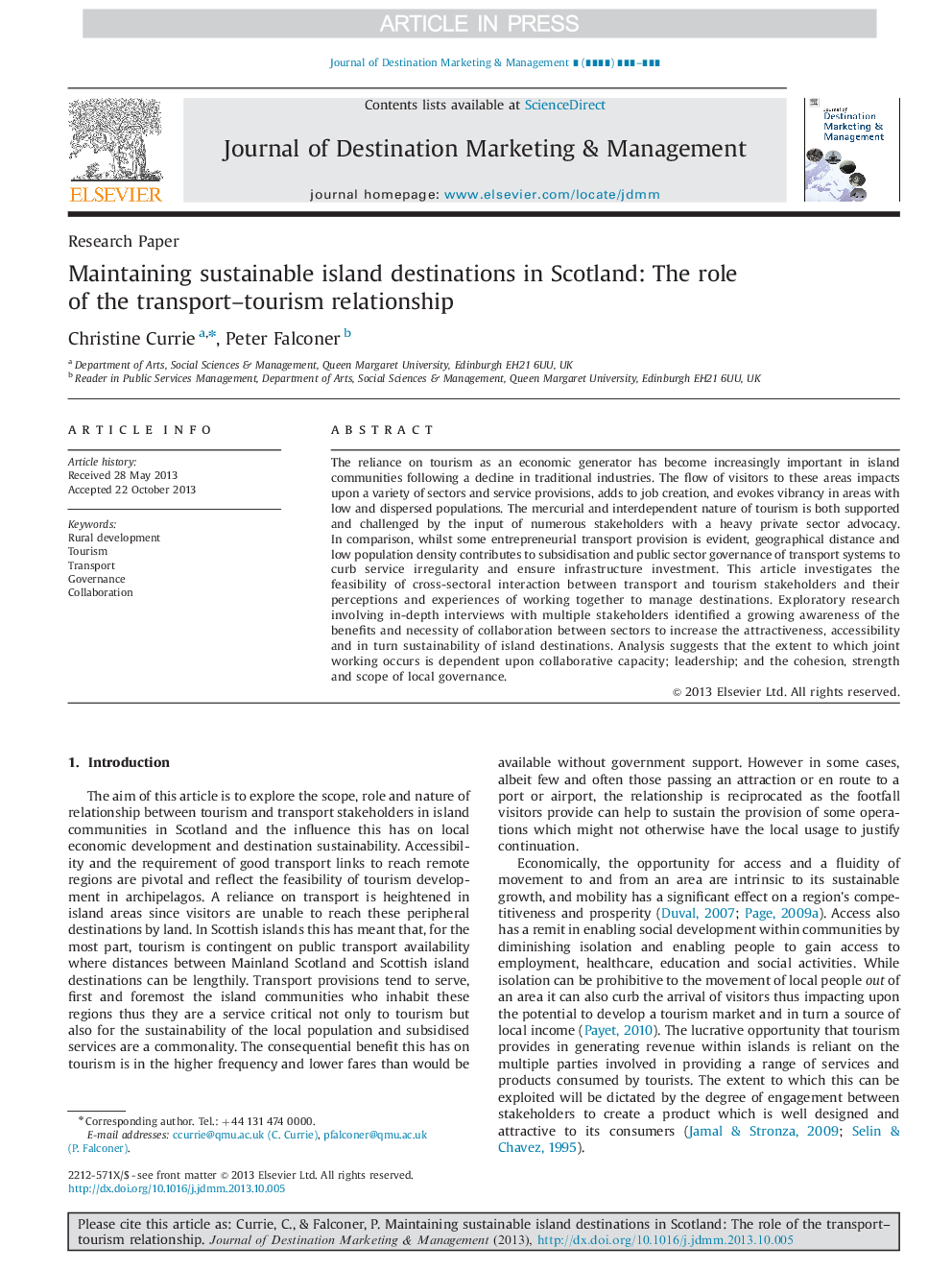| Article ID | Journal | Published Year | Pages | File Type |
|---|---|---|---|---|
| 10490389 | Journal of Destination Marketing & Management | 2014 | 11 Pages |
Abstract
The reliance on tourism as an economic generator has become increasingly important in island communities following a decline in traditional industries. The flow of visitors to these areas impacts upon a variety of sectors and service provisions, adds to job creation, and evokes vibrancy in areas with low and dispersed populations. The mercurial and interdependent nature of tourism is both supported and challenged by the input of numerous stakeholders with a heavy private sector advocacy. In comparison, whilst some entrepreneurial transport provision is evident, geographical distance and low population density contributes to subsidisation and public sector governance of transport systems to curb service irregularity and ensure infrastructure investment. This article investigates the feasibility of cross-sectoral interaction between transport and tourism stakeholders and their perceptions and experiences of working together to manage destinations. Exploratory research involving in-depth interviews with multiple stakeholders identified a growing awareness of the benefits and necessity of collaboration between sectors to increase the attractiveness, accessibility and in turn sustainability of island destinations. Analysis suggests that the extent to which joint working occurs is dependent upon collaborative capacity; leadership; and the cohesion, strength and scope of local governance.
Related Topics
Social Sciences and Humanities
Business, Management and Accounting
Business, Management and Accounting (General)
Authors
Christine Currie, Peter Falconer,
